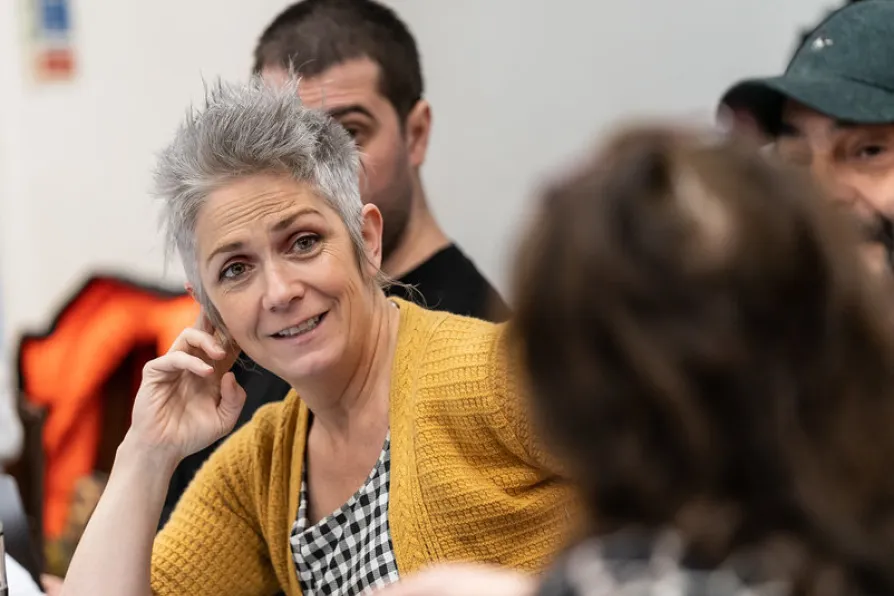RITA DI SANTO draws attention to a new film that features Ken Loach and Jeremy Corbyn, and their personal experience of media misrepresentation
The heart of the Matti
DENISE MINA tells Angus Reid why she's updated Brecht's anti-capitalist satire to the era of zero-hours contracts and food banks

 FORENSICALLY FUNNY: Denise Mina in rehearsal
FORENSICALLY FUNNY: Denise Mina in rehearsal
MR PUNTILA and his Man Matti was Bertholt Brecht’s idea of a popular comedy — a sure-fire socialist crowd-pleaser. He believed in the play so much that in 1948 he used it to launch the Berliner Ensemble, the legendary theatre company whose practice still resonates globally.
He wrote it in Finland in 1940 while he hopped from country to country, staying one step ahead of the nazi occupations of European countries. Among his work of that period it is the odd one out, being entirely to do with economic relations and nothing to do with the war.
Similar stories

Farringdon looks ahead to this weekend's races

STEF LYONS is swept along by the infectious energy of an ex-con single mother’s dreams of Nashville

Our tipster gives this weekend's lowdown











